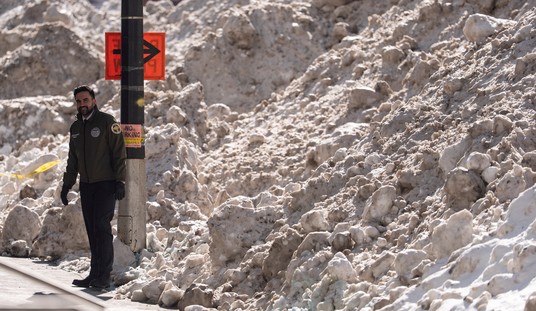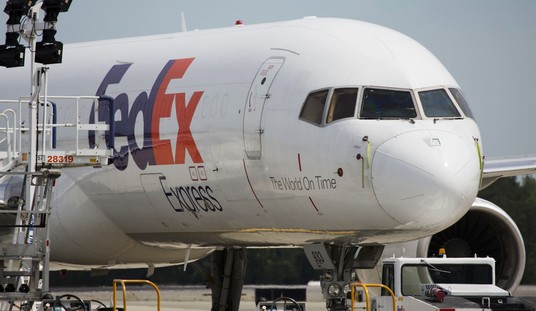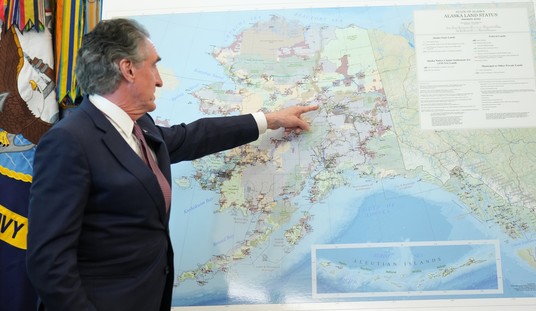(The opinions expressed by contributors are their own and do not necessarily represent the views of RedState.com.)
This is a tumultuous time in our nation’s history, even economically speaking. The entertainment sector has responded by offering up an endless stream of cheap, dependable nostalgia. Our most beloved stories have been rebooted, reimagined, and sequeled nearly to death by now. Audiences seek comfort in familiarity, and studios seek easy box office returns. Throw the Chinese market into the mix and it is a match made in mediocrity. It is unfortunate but understandable. Why take risks on original films for theatrical releases with the economy so unstable right now? Original content is far too risky. A sure thing is a good thing.
There is one “cheat” that can get around the reboot curse, and that is to load your film with bankable celebrities. Those are few and far between in the days of “Tik Tok famous,” but they’re still out there. The Tom Team – Cruise and Hanks – can still sell tickets. Jennifer Lopez remains an A-list draw, and certain franchises like Bond and Marvel are excellent at exploiting traditional celebrities for ticket sales.
Add Julia Roberts and George Clooney to that “cheat” list. The long-time friends and acting partners are some of the last holdovers from an era in which we had just enough internet to bolster celebrity, but not enough that we took the vital “mystery” out of celebrity. The two reunite in the light-hearted romantic comedy Ticket to Paradise and prove that chemistry and star power are still enough to support a feature film.
Twenty-one years after starring in Ocean’s Eleven, Roberts and Clooney join forces once again as David and Georgia Cotton- middle-aged, impossibly attractive divorcees who are forced to endure each other as they attend their daughter Lily’s (Kaitlyn Dever) law-school graduation. The movie wastes no time in letting us know that it has banked everything on the unmatchable charms of its two leads. We see David and Georgia in their individual environments, preparing to head out to the graduation, expositing the failure of their relationship to their respective, silent scene partners (because who can afford to pay the day players for extra line readings these days?).
Right away we know three things – these two despise each other after a contentious divorce many years prior; they love their daughter more than they hate each other, and they are VERY JULIA ROBERTS and VERY GEORGE CLOONEY. We know we’re in for 90 minutes of quips and riffs and Roberts’ signature smile and that’s okay. It’s exactly what we came for.
It takes very little time to get the ball rolling. We see the Cottons cheering on their daughter while insulting each other through gritted teeth. We meet Lily’s best friend, Wren (played with wonderful and witty bite by Billie Lourd, channeling all the best parts of her mother, the late Carrie Fischer), the obligatory budding alcoholic wild child who is rough around the edges, but the one person you’d want on your side in tough times. Mom and Dad stay long enough to send off Lily and Wren to a fabulous, post-grad Bali vacation before hissing goodbyes to each other, content with the thought of finally being rid of one another.
Of course, this is a romantic comedy. Our leads will most certainly see each other again, but not before we see Lily and Wren enjoying their Bali getaway and soaking up the culture. A quick and easy meet-cute introduces Lily to super-hot seaweed farmer Gede (pronounced g’day) and the two quickly fall in love and plan a wedding. Lily doesn’t want to be a high-powered lawyer. She’s fallen in love with the culture and beauty of Bali, and the beauty of her super-hot fiance (Maxime Bouttier…those dimples though). Sure, it’s sudden, but as Lily’s mother likes to say, “Why wait for the good stuff?” The only thing left to do is fly mom and dad back out and have a wedding.
Mom and dad, naturally, worry their little girl is rushing into an institution that they themselves do not feel fondly about in the first place. They arrive at the beach with a half-cocked plan to break up the young couple, thus sparing their daughter the disappointment of what they are sure will be a brutal failure, eventually.
And we’re off. Hijinks ensue. David is uptight and cranky; Georgia is uptight and out to prove she is happier than ever with her gorgeous, young French boyfriend who somehow manages to tag along for a bit of manufactured romantic tension. Quips and barbs fly back and forth at lightning speed. Will these two find a way to stop their daughter’s wedding? Will they rediscover the love they once had? Will this movie end with a blooper reel?
I don’t have to tell you the answer to any of those. You already know, and that is what works so tremendously well with this film. We know what we’re getting. Roberts’ beautiful bright smile, Clooney’s rakish personality, and rugged good looks, and the chemistry between them that has made them huge, bankable stars since the 1990s. The plot is an afterthought. We’re here for Clooney and Roberts and we get that in spades.
Still, there is a sweetness about the film that can’t be ignored. It is clear that director Ol Parker and his co-writer Daniel Pipski know exactly what audience they were making this film for. There is absolutely nothing offensive about the movie, other than how beautiful Julia Roberts remains on screen (can she age so the rest of us don’t feel so bad???). There is no messaging, no agenda, not even a single pride flag or Donald Trump reference. And even though the Cottons are clearly out of their element in the traditional Bali culture, there are no lectures about “colonizers” or ignorant Americans. There are a few playful barbs, but mostly we, the audience, are allowed to experience the newness of this new culture alongside David and Georgia without shame, and even a few self-deprecating laughs.
Lily and Gede give us a delightful portrayal of young love. There isn’t a shred of cynicism in their union, and the fact that they even feel compelled at all to marry (and marry young) and settle into a traditional life seems almost rebellious in a Hollywood script these days. Each obstacle Lily’s childish parents throw in their way simply leads to another opportunity for the two to commit to each other. Their relationship gives us a subtle hint about the ultimate purpose of taking vows – they are promising to prioritize each other, and to work around hardships as a team, not succumb to them because it feels hard.
It is a tough lesson for David and Georgia to learn, but they soon come to realize their daughter is doing what they did not have the courage to do so many years ago. She is committing, and that is a good thing. If there’s a lesson in this movie, it is that. Georgia’s life motto is a reminder to the audience that sometimes we ignore the happiness right in front of us in search of some perfect future that is surely out there if we pay just one more bill, buy one more house, and have one more great love.
Why wait for the good things?
It is a surprisingly traditional film that heralds the advantages of marriage and scolds the idea of giving up on it too easily. Love is a choice, and it is one made easier when families can unite to support the lovers. Gede’s family lovingly opens their arms to their new American daughter-in-law, in turn welcoming her skeptical parents, and their invitation is irresistible, both to the Cottons and the viewers. Families can be weird and strange and crazy, but they are what make a home. Lily tells her father, “I belong here” and in that moment we realize that home really is where the heart is.
Can David and Georgia find home again? In the end, David and Georgia see that they’ve wasted much of their lives waiting for the good things, when it turns out they had the good thing all along – their daughter, and the love that created her.
Ticket to Paradise clocks in at a tight hour and forty-four minutes, with a charming blooper reel to keep you in your seat through the end credits. The script has a surprisingly sweet tone that feels like a cozy blanket in a cold entertainment landscape, but this film is not about the script. It is about its two stars, and the warmth they still exude on the big screen. They welcome us into this story, and for an hour and a half, we get to laugh along with old friends, in a beautiful location (the movie was filmed in some of Australia’s most stunning locations) and not be hassled by politics or lecturing or moralizing.
It’s a ride the viewer will be happy to take, so get a ticket and get on board. After all, why wait for the good things?













